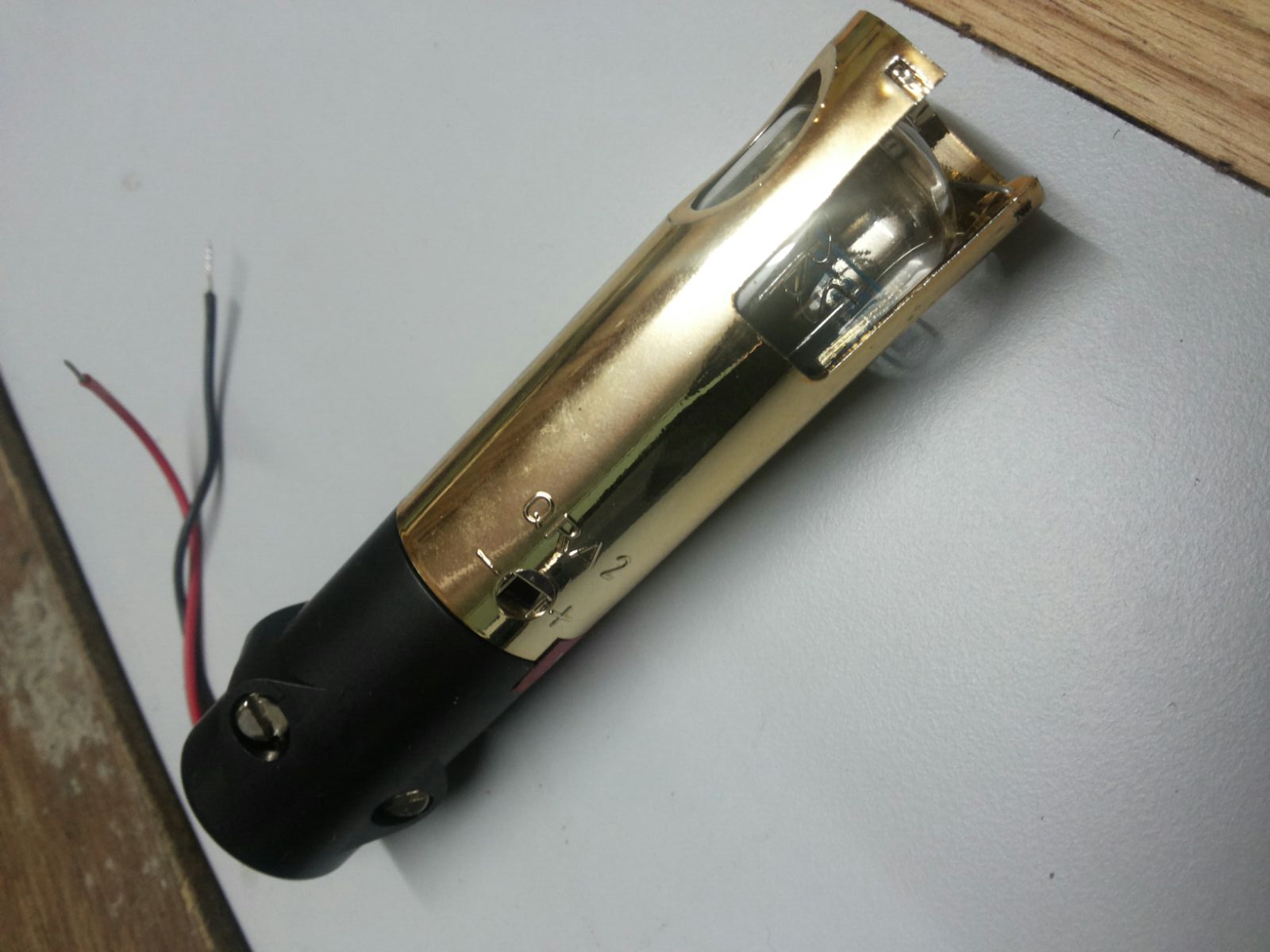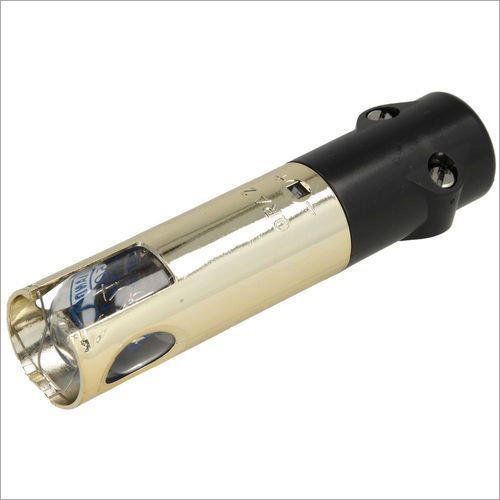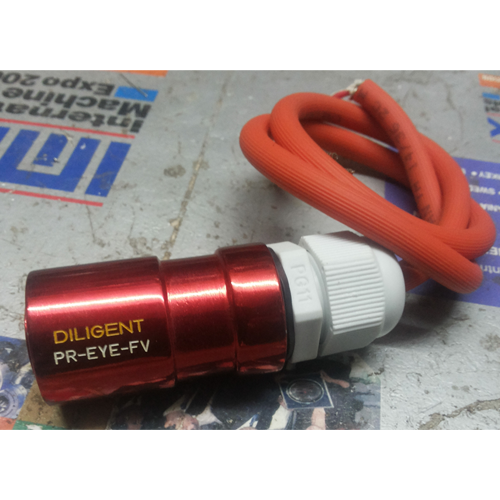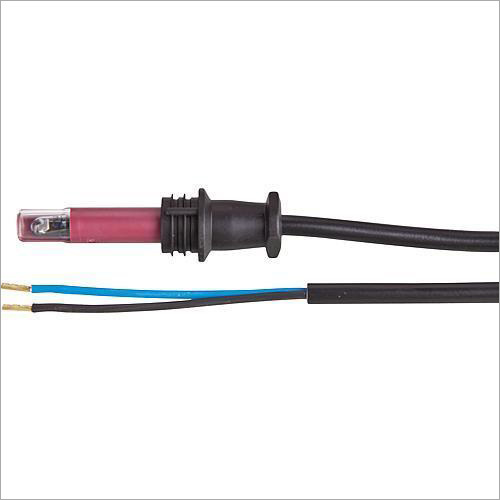- Home Page
- Company Profile
- Our Products
- Contact Us
Flame Detector Sensors
8500.0 INR/Piece
Product Details:
- Signal Type Analog / Digital
- Response Time <3 seconds
- Sensor Type UV/IR Flame Sensor
- Power Consumption <4W
- IP Rating IP65
- Sensitivity Adjustable
- Measurement Range Up to 30 meters
- Click to View more
X
Flame Detector Sensors Price And Quantity
- 1 Piece
- 8500.0 INR/Piece
Flame Detector Sensors Product Specifications
- Analog / Digital
- High
- 3%
- <3 seconds
- Industrial
- Detects Presence of Flame
- Flame Detector Sensors
- Aluminium
- <4W
- Yes
- Optical Signal
- UV/IR Flame Sensor
- Approx. 450g
- IP65
- Adjustable
- Up to 30 meters
- Fire Detection, Safety Systems, Industrial Process Monitoring
- Relay Contact / 4-20mA / Digital
- 220 Volt (v)
- No
- Wall / Surface Mount
- Terminal Block
- -20C to +70C
- 1.5 meters
- Corrosion Resistant, Fast Response, Easy Installation, False Alarm Immunity
Flame Detector Sensors Trade Information
- 1 Piece Per Week
- 2 Week
Product Description
Equipped with an advanced state of the art infrastructure, we are providing esteemed clients with highly effective Flame Detector Sensors. These are highly efficient in sensing the air for any fire breakage and rising alarm before any causality can transpire. Developed with high accuracy, these sensors function on photo resistor (LDR) type PR-EYE-FV and PR-EYE-SV. The raw material used in sourced from certified vendors of the market. Moreover, the offered range is strictly quality tested post production to ensure on its absolute quality, longevity and functionality.
Flame Detector Sensor advantages:
1. Fast Detection: Flame detectors can quickly detect the presence of flames, often within milliseconds. This rapid response time is critical for initiating timely alarms and taking appropriate actions to prevent the spread of fires.
2. False Alarm Reduction: Modern flame detectors are designed to minimize false alarms by using advanced technologies that focus on the specific spectral characteristics of flames. This helps avoid unnecessary disruptions and ensures that alarms are triggered only when there is a genuine fire threat.
3. Wide Area Coverage: Flame detectors can cover relatively large areas, making them suitable for environments where traditional smoke detectors might be less effective, such as open spaces, outdoor areas, and industrial settings.
4. Insensitive to Smoke: Unlike traditional smoke detectors, flame detectors are not affected by the presence of smoke or dust particles in the air. This makes them highly reliable in environments where smoke may be present even without an actual fire.
5. Suitable for Specific Hazards: Flame detectors can be designed to detect specific types of flames, such as those produced by hydrocarbon fires, which are common in industrial settings. This specialization allows for efficient detection in environments where specific types of fires are more likely to occur.
6. Harsh Environment Compatibility: Many flame detectors are built to withstand harsh environmental conditions, such as extreme temperatures, humidity, and chemical exposure. This makes them suitable for use in industries like petrochemicals, oil and gas, and manufacturing.
7. Early Warning: Early detection of flames allows for faster response times, which can help minimize damage to property, equipment, and the environment. It also provides more time for evacuation procedures, reducing the risk to human life.
8. Integration with Fire Suppression Systems: Flame detectors can be integrated with fire suppression systems, such as automatic sprinklers or gas-based suppression systems. This ensures that appropriate measures are taken immediately to control or extinguish the fire.
9. Remote Monitoring and Control: Many flame detectors can be remotely monitored and controlled, allowing for centralized monitoring of multiple locations. This is especially useful for large facilities or facilities in remote areas.
10. Complementary to Other Systems: Flame detectors complement other fire detection systems, such as heat and smoke detectors, by providing an additional layer of fire detection capability. This multi-faceted approach enhances the overall reliability and effectiveness of the fire detection system.
11. Industrial Compliance: Certain industries, such as oil and gas, power generation, and manufacturing, have specific safety regulations that mandate the use of flame detectors to ensure worker safety and prevent accidents.
FAQ:
Q1: What is a flame detector sensor?
Ans: A flame detector sensor is a specialized device designed to detect the presence of flames or fires. It utilizes various technologies, such as ultraviolet (UV), infrared (IR), and multispectral sensors, to identify the unique characteristics of flames and initiate alarms or other safety measures.
Q2: How do flame detector sensors work?
Ans: Flame detector sensors work by detecting the specific wavelengths of light emitted by flames. Different types of flames emit different spectral signatures. UV flame detectors respond to the ultraviolet light produced by flames, while IR flame detectors detect the infrared radiation emitted by flames.
Q3: What types of flames can flame detector sensors detect?
Ans: Flame detector sensors can detect a wide range of flames, including hydrocarbon fires (such as those caused by fuels like gas, oil, or gasoline), metal fires, and other types of fires that emit characteristic wavelengths of light.
Q4: What are the advantages of using flame detector sensors over smoke detectors?
Ans: Flame detector sensors are advantageous over smoke detectors in environments where smoke or dust particles are present without an actual fire. They are also faster at detecting flames, are not susceptible to false alarms from cooking smoke or steam, and are well-suited for open spaces and harsh environments.
Q5: Where are flame detector sensors commonly used?
Ans: Flame detector sensors are commonly used in industrial settings such as oil refineries, chemical plants, power generation facilities, warehouses, and manufacturing plants. They are also used in outdoor areas, aviation facilities, and other places where early fire detection is critical.
Q6: What are the main technologies used in flame detector sensors?
Ans: The main technologies used in flame detector sensors include UV (ultraviolet), IR (infrared), and multispectral sensors. Each technology has its strengths in detecting different types of flames and environmental conditions.
Q7: How are false alarms minimized in flame detector sensors?
Ans: False alarms are minimized through advanced algorithms and filters that focus on the specific spectral characteristics of flames. This reduces the likelihood of triggering alarms due to non-fire-related sources of light.
Q8: Can flame detector sensors be integrated with other safety systems?
Ans: Yes, flame detector sensors can be integrated with other safety systems, such as fire suppression systems (like sprinklers or gas-based systems), alarm systems, and central monitoring stations. This integration ensures a comprehensive fire safety approach.
Q9: What are the maintenance requirements for flame detector sensors?
Ans: Maintenance requirements vary, but regular cleaning to prevent dust or dirt buildup on the sensor's lens is essential. Periodic testing and calibration are also recommended to ensure the sensor's accuracy and reliability.
Q10: Are there different mounting options for flame detector sensors?
Ans: Yes, flame detector sensors can be wall-mounted, ceiling-mounted, or installed on equipment or structures based on the specific requirements of the environment.
Q11: Do flame detector sensors work in complete darkness?
Ans: Yes, certain types of flame detector sensors, particularly those that rely on IR technology, can detect flames even in complete darkness.
Q12: Are flame detector sensors suitable for outdoor use?
Ans: Yes, flame detector sensors can be suitable for outdoor use, especially those designed to withstand weather conditions and environmental factors.
Tell us about your requirement

Price:
Quantity
Select Unit
- 50
- 100
- 200
- 250
- 500
- 1000+
Additional detail
Mobile number
Email








 English
English Spanish
Spanish French
French German
German Italian
Italian Chinese (Simplified)
Chinese (Simplified) Japanese
Japanese Korean
Korean Arabic
Arabic Portuguese
Portuguese